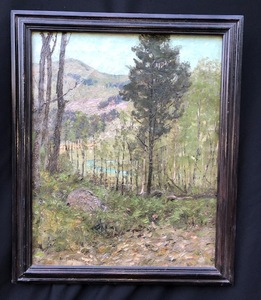REPRODUCTIONS
ANTIQUES

Specializing in the works of Roycroft, Limbert, Gustav Stickley, Rohlfs, Dirk Van Erp, L. &. J.G. Stickley , Stickley Brothers and Charles Stickley, D`Arcy Gaw, Greene & Greene and Harvey Ellis. Custom reproductions and antiques.
Listed Artist Ben Foster Framed Original Landscape Oil on Canvas. Signed lower left corner. Biography from the Archives of askART Benjamin Foster's painting specialty was bucolic scenes of the New England countryside. His style was predominantly Tonalist* with subdued colors and limited tones---almost exclusively autumn colors, muted browns, grays and rusts. In Tonalist tradition, he completed most of his paintings, both oil and watercolor, in his studio and not on location, en plein air.* Foster was born in North Anson, Maine, where he spent his childhood, along with his artist brother, Charles Foster. For financial reasons, he did not begin an art career until he was almost age thirty. In 1870, he settled in New York City, and took a mercantile job to support art training. He attended the Art Students League* in New York City, and studied privately with Abbott Thayer, whose influence on Foster was the painting of floral still life. In 1886, like many American artists, he went to Paris. He traveled with Leonard Ochtman and Charles Warren Eaton, with whom he had been sharing a New York studio at 9 East 17th Street. In Paris, he studied with Aime Morot, Luc Oliver Merson, and Harry Thompson and exhibited paintings at the Paris Salon*. He also went to the French countryside including Barbizon where he did pastoral paintings. Foster returned to America in 1887, and lived both in Manhattan and Cornwall Hollow, Connecticut, where he had a country home. Most of his landscape painting was of that area. He sought out "intimate corners of his environment---usually tree-lined ponds, fields, and woodlands---that he liked to depict at contemplative times of day, such as dawn or dusk, and during intermediary times of year." (Lowrey, 134) In addition to painting, he wrote art reviews for the New York Evening Post and the Nation. He was a member of the National Arts Club*, National Academy of Design*, New York Water Color Society*, National Water Color Society*, Lotos Club*, California Art Club* and Society of Men Who Paint the Far West*. He died in New York City. Upon his death, the National Arts Club released a memorial notice that described Benjamin Foster as "the ideal type of artist . . . ardent in seeking deeper meanings, but indifferent to the casual and popular." (Lowrey, 134) Carol Lowrey, 'Ben Foster', The Poetic Vision: American Tonalism, p. 134 Peter Falk, Who Was Who in American Art * For more in-depth information about these terms and others, see AskART.com Glossary http://www.askart.com/AskART/lists/Art_Definition.aspx Biography from Newman Galleries From 1870-82, Benjamin Foster worked at odd jobs in New York City until at age 30 he became dedicated to painting. He became known for his landscapes painted around his home in Cornwall, Connecticut, which were admired for their meditative qualities, capturing the atmospheric effects of dawn and sunset, moonlight and twilight, French critics compared him to Cazin. He was also a critic, writing for The New York Evening Post and The Nation. His work is in the J. Paul Getty Museum, The Muse'e d' Orsay, The Metropolitan Museum of Art, National Gallery, Smithsonian Institution and numerous public and private collections. Studied: with Abbot H. Thayer, c.1882; Luc Olivier Merson and Aime Morot in Paris, 1886-87. Member; American National Academy, 1901; National Academy, 1904; Soceiety of American Artists, 1897; New York Water Colors Society; American Watercolor Society; Century Association.; California Art Club; National Institute of Arts and Letters; Lotos Club; SC; National Art Club; Society of Men Who Paint the Far West. Exhibited; Brooklyn A1A, 1880-86,1891; Boston AC, 1884-1904; AIC; Paris Salon, 1887; PAPA, 1892-1908,1916, 1921-26; Columbian Expo, Chicago, 1893 (medal); Cleveland, 1895 (prize); Paris Expo, 1900 (bronze medal); CT, 1900 (silver medal); Pan-Am. Expo, Buffalo, 1901 (medal); SAA, 1901 (prize); St. Louis Expo,1904 (med); NAD, 1884-95; 1906 (Carnegie Prize, prize), 1908 (Inness gold medal), 1909 (gold), Webb Prize, 1917 (prize), 1917 (Altaian Prize); Corcoran Gal., 1907-23; NAC, 1917 (gold medal); Newport AA, 1926 (People's Prize). Work; CGA; TMA; Luxembourg Mus., Paris,. NGA; PAPA; Brooklyn Inst. Mus.; Public Gallery, Richmond, IN; MMA; AIC; CI; Butler Art Inst.; Hamson Gallery, Los Angeles Mus.; Montreal Art Assoc.; City Art Mus., St. Louis, Mo; Omaha Soc. PA; Grand Rapids; Albright Gallery. Buffalo; Memorial Gallery, Rochester, NY.
| Product ID | : #6672 |
Click images for larger versions
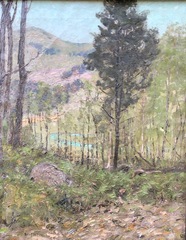
|
|
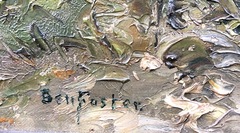
|
Signed in the artist's hand lower left corner "Ben Foster". |
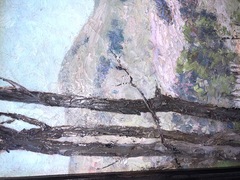
|
|
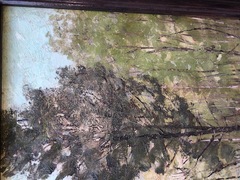
|
|
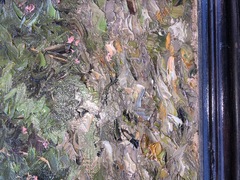
|
|
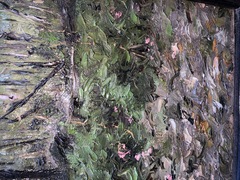
|
|
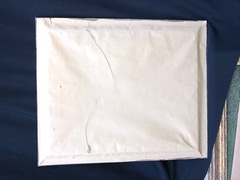
|
|
